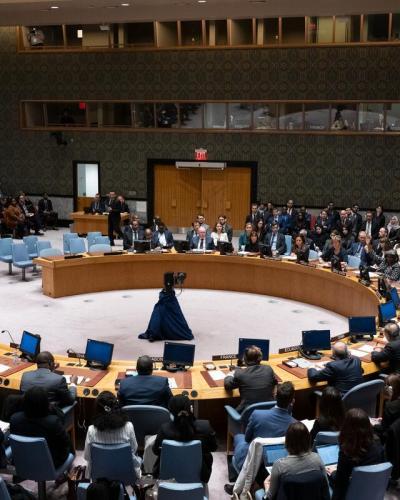The situation in Kosovo was the focus of a UN Security Council meeting today, attended by Kosovo President Vjosa Osmani and Serbian Prime Minister Ana Brnabić. Tensions and insecurity in Kosovo have increased since the last Council meeting. A Kosovar police officer was killed and several people were injured in an attack on the Kosovar police this September. De-escalation is therefore necessary in view of a serious return to the normalisation process.
In view of this, Switzerland condemned the recent violence in Kosovo in the Security Council and called on all parties to cooperate. In order to implement political solutions, inflammatory rhetoric or the increased stationing of troops near the border should be avoided. Switzerland called on the parties to engage in the EU-led dialogue and to implement their obligations under the agreement to normalise relations between Kosovo and Serbia.
Switzerland maintains close relations with Kosovo for more than thirty years and is home to a large diaspora. Switzerland actively supports the dialogue between Serbia and Kosovo and contributes to building trust. A central pillar in the reconciliation process is coming to terms with the past. Among other things, Switzerland actively supports both states in the search for and identification of missing persons. As part of its international cooperation, Switzerland promotes inclusive and democratic governance in Kosovo and creates decent jobs. In this way, it contributes to future prospects for the whole of society.
In addition, the Swiss contingent in the Kosovo Force (KFOR) is the largest Swiss contingent in a peace mission, with up to 195 members of the armed forces. KFOR has its origins in a UN Security Council resolution from 1999. KFOR pursues the goal of ensuring the freedom of movement of the population and providing a stable environment. Swiss Armed Forces personnel are making a concrete contribution on the ground so that KFOR can achieve this goal. At today's meeting of the Security Council, Switzerland underlined its support for KFOR as a guarantor of security.




